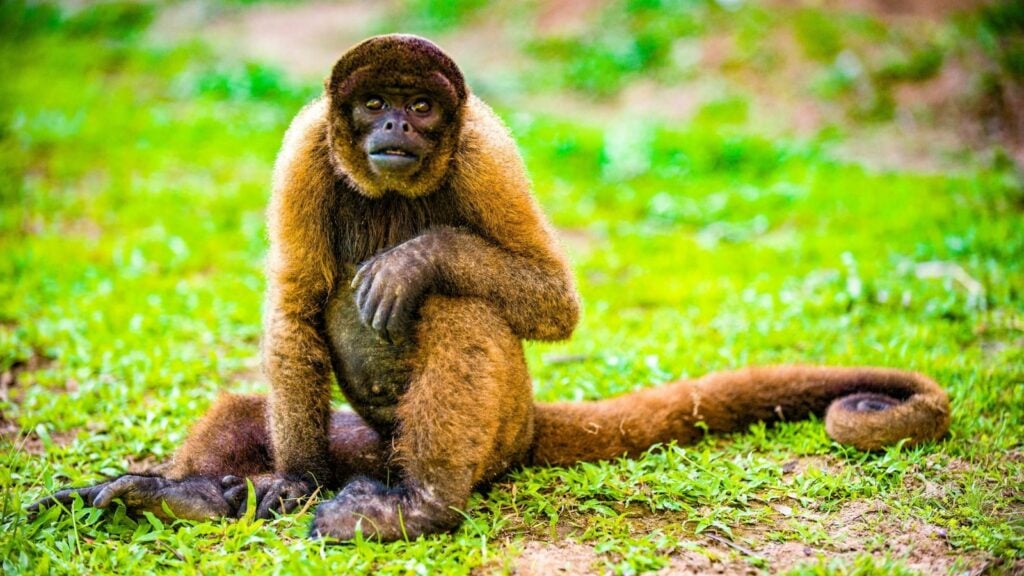The Constitutional Court of Ecuador has recognized the legal rights of nonhuman animals for the very first time.
It all started with Estrellita, a woolly monkey. She was taken from the wild as a baby, before residing as a pet with librarian Ana Beatriz Burbano Proaño for 18 years.
In 2019, Estrellita was seized by authorities. She was taken to San Martín de Baños Zoo, where she died within one month. The monkey was relocated because it is illegal to keep wild animals as pets in Ecuador.
Ecuador passed the law protecting wild animals from the pet trade in 2017. And for good reason. The exotic animal pet trade is cruel, with animals often suffering immensely during capture, transportation, and later, extended captivity. It is also detrimental to the environment and wild animal populations.
In an attempt to get Estrellita back, and not realizing the animal had died, Proaño filed a habeas corpus action, which came before the court last year. This is a recourse in law that serves to challenge unlawful detention.
Estrellita’s influential case
For context, in 2008, Ecuador become the first in the world to enshrine the “rights of nature” in law. The historic ruling meant that the Ecuadorian Constitution recognizes that ecosystems have the right to exist and flourish.
In Estrellita’s case, the court ruled for the first time that the rights of nature can extend to individual wild animals, that wild animals have rights, and that Estrellita’s had been violated (both when she was poached from the wild, and when she was forcibly moved to a zoo).
The verdict is significant because it means that going forward, the same approach can be applied in other cases involving wild animals, too. Environmental lawyer Hugo Echeverría said in a statement: “This verdict raises animal rights to the level of the constitution, the highest law of Ecuador.”
“While rights of nature were enshrined in the constitution, it was not clear prior to this decision whether individual animals could benefit from the rights of nature and be considered rights holders as a part of nature,” he added. “The Court has stated that animals are subject of rights protected by rights of nature.”






